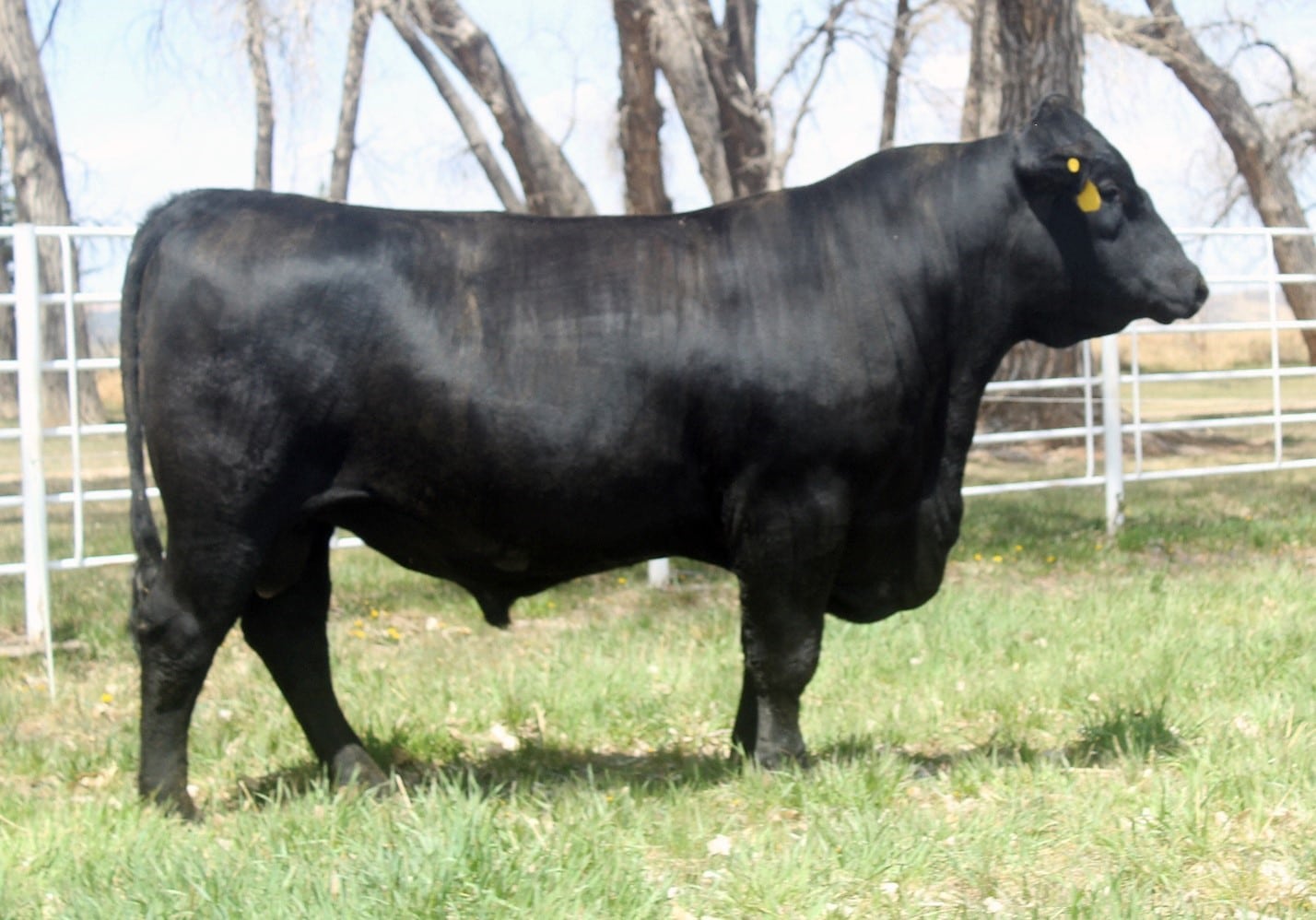Importance of Breakthrough
When subject to high temperatures, most cattle breeds in the U.S. often undergo stress causing them to exhibit extreme physical reactions. Heat stress reduces feed intake, impedes growth and increases disease susceptibility; ultimately, heat stress decreases milk and meat production per amount of greenhouse gas emitted.

The first SLICK Angus bull, Stay Cool, commercially available in the U.S. Stay Cool’s first calves were born in January 2024 in the U.S. Photo courtesy of Dr. Tad Sonstegard
Details about this breakthrough
To address this problem, Acceligen researchers designed genetic modifications to render cattle more resistant to heat. These modifications were based on Acceligen’s previous research of the prolactin receptor gene found in cattle breeds adapted to the heat of the Caribbean Basin. Using new breeding technologies based on gene editing, researchers introduced a genetic modification in the prolactin receptor that led to a condition known as SLICK, which protects these animals from heat stress. Cows with a SLICK mutation also have lower normal body temperatures than cattle without it and shorter hair that allows their bodies to respond more efficiently as temperatures rise.